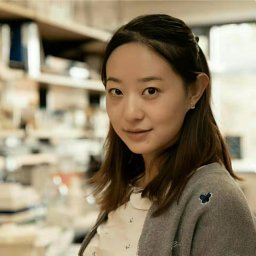
Speaker: Mingqi Han
Affiliation: UCLA | School of Medicine
ABSTRACT:
Cancer cells depend on nutrients like sugar and fat to generate the building blocks necessary for growth and expansion. The nutrient preferences of tumors are influenced by the communication between cellular organelles and the architectural arrangement of various cell types. In this study, I have developed a ‘Google Earth’ approach for tumor visualization, utilizing multi-modality imaging technologies. This method allows us to zoom from a few millimeters down to less than one hundred angstroms, connecting tumor metabolic profiles to their ultrastructural networks (Han et al., Nature, 2023). The imaging platform provides a top-down analysis of tumors from whole-animal level down to the spatial organization of cellular ultrastructures. Specifically, Position Emission Tomography (PET) with metabolic-based radiotracers (18F-FDG and 18F-FBnTP) was used to measure glucose flux and mitochondrial membrane potential, stratifying tumor metabolic signatures in vivo in lung cancer. Furthermore, 3D Serial Block-Face Electron Microscopy (3D SBEM) offered angstrom-resolution images to map mitochondrial morphology, spatial distribution, and interactions with other intracellular organelles. To analyze inter-organelle communication in large-format 3D SBEM dataset, we developed a scalable convolutional neural network (CNN). This network enables automatic organelle segmentation and reconstruction at a 106 magnitude. Analysis revealed mitochondria clustered around the nucleus in sugar-reliant tumors, while mitochondria in fat-dependent tumors were found near lipid droplets. Moving forward, we aim to apply machine learning methods to fuse data from different medical imaging modalities, enhancing the ability to predict therapeutic outcomes.
BIO:
Dr. Mingqi Han completed her PhD in Medicine in 2018 at The University of Sydney and the Children’s Medical Research Institute, under the mentorship of Dr. Roger Reddel. Her doctoral research focused on utilizing cytolytic viruses to target tumor intrinsic immune vulnerabilities. Following her graduate, she relocated from Sydney, Australia to Los Angeles. During her postdoctoral time at UCLA, she developed a strong interest in biomedical imaging techniques and machine learning, particularly in relation to tumor metabolism and cellular inter-organelle communication. In 2023, Mingqi received the Future of Science Scholarship from the Keystone Symposia Fund, recognizing her research on mapping mitochondrial heterogeneity in lung cancer. In 2024, she received the Early-Career Scientist Award from the Montreal Clinical Research Institute, to continue her research into cancer metabolism. Outside of her professional pursuits, Mingqi enjoys watching murder-mystery movies, practicing yoga and Pilates, babysitting, and exploring diverse cuisines.
Hosted by Professor Stefano Soatto
Date/Time:
Date(s) - Feb 01, 2024
4:15 pm - 5:45 pm
Location:
3400 Boelter Hall
420 Westwood Plaza Los Angeles California 90095
